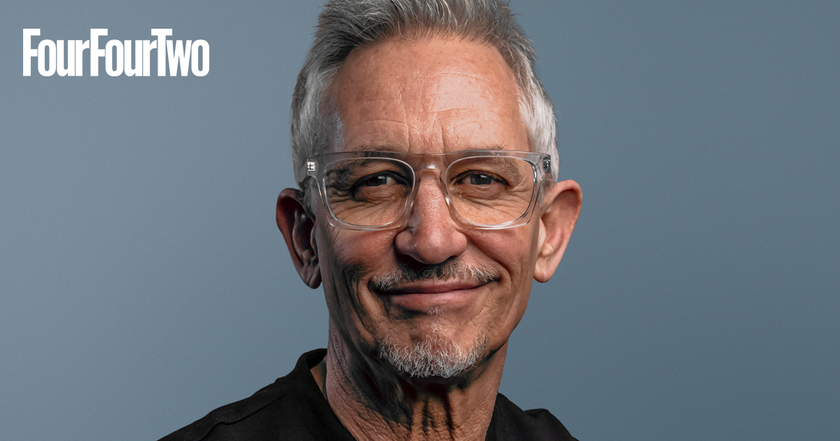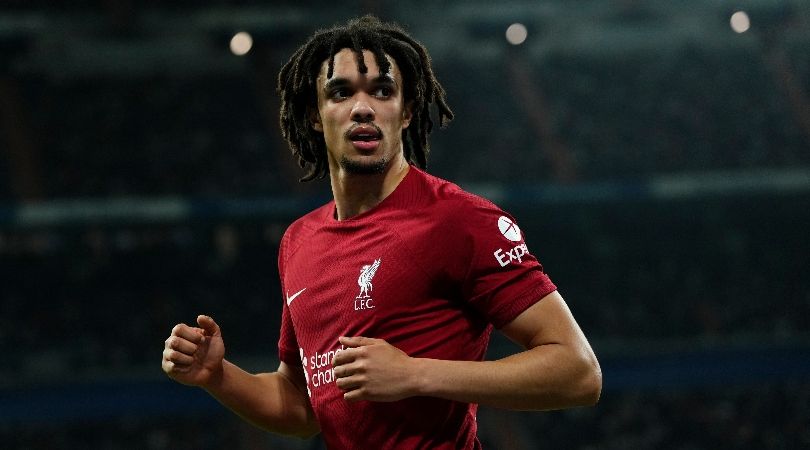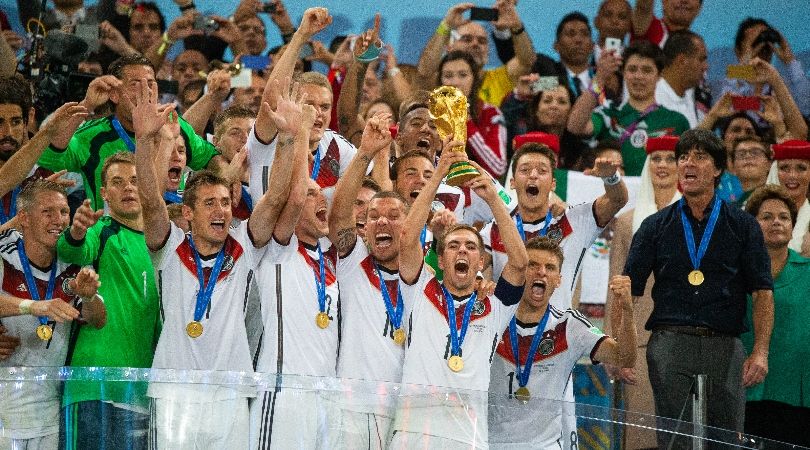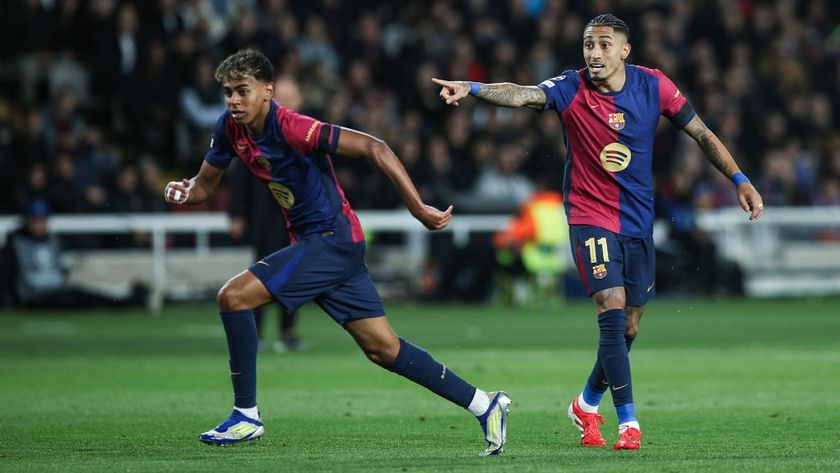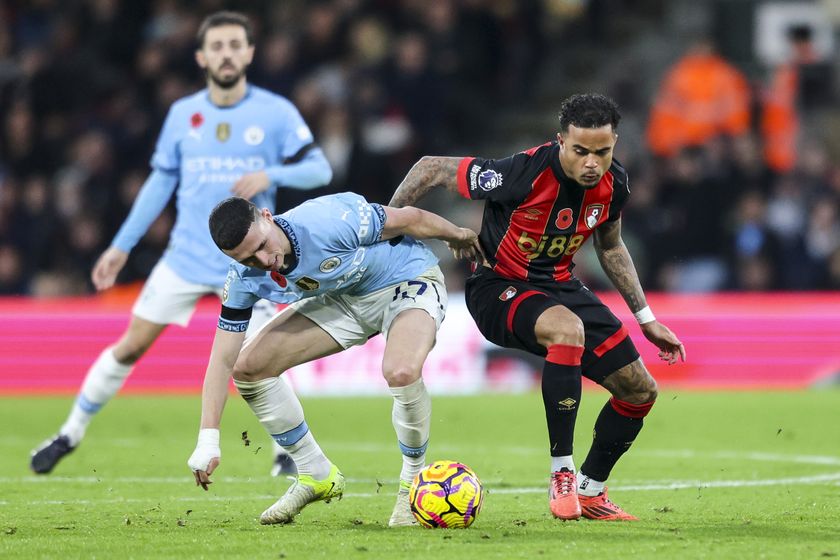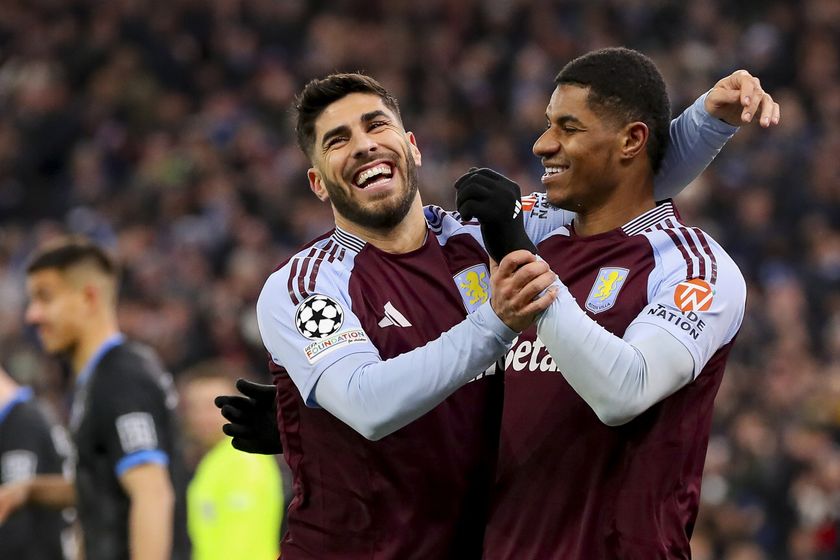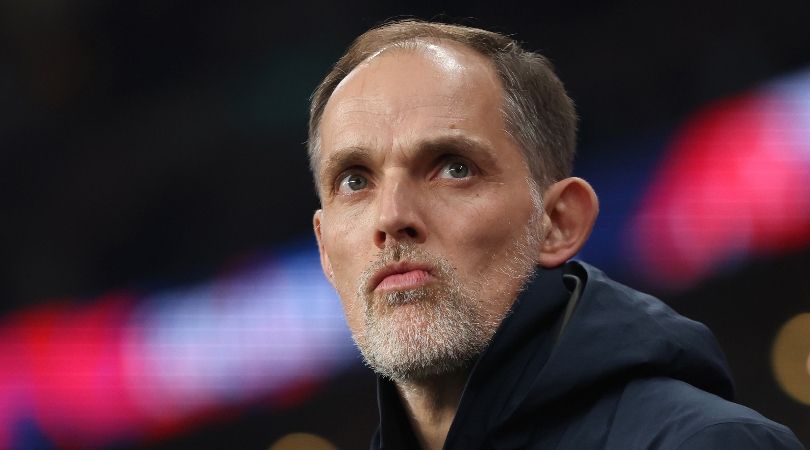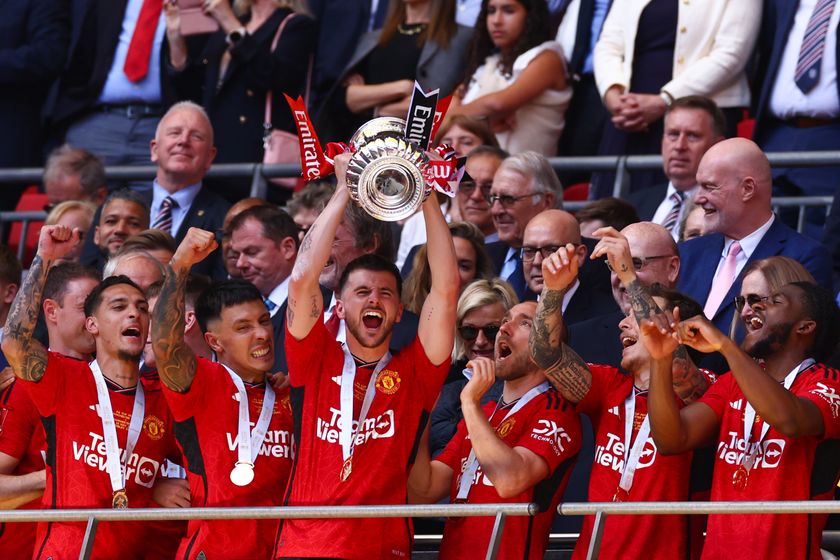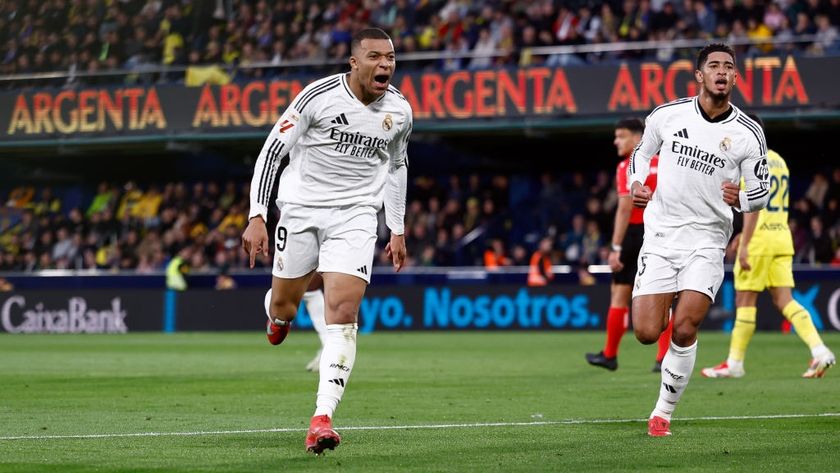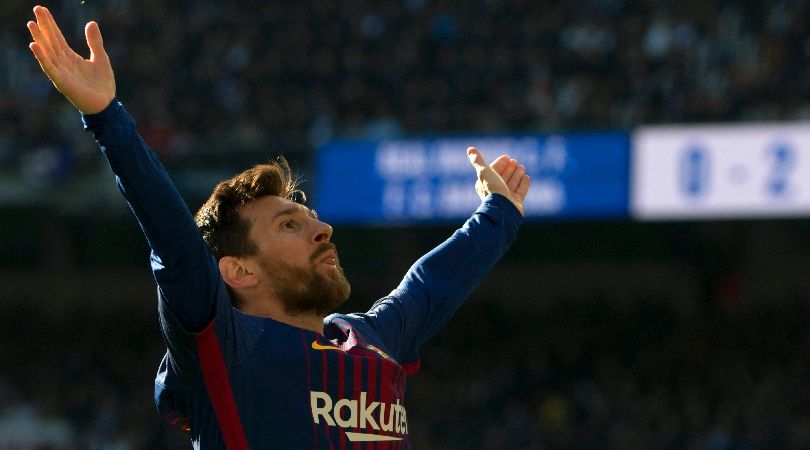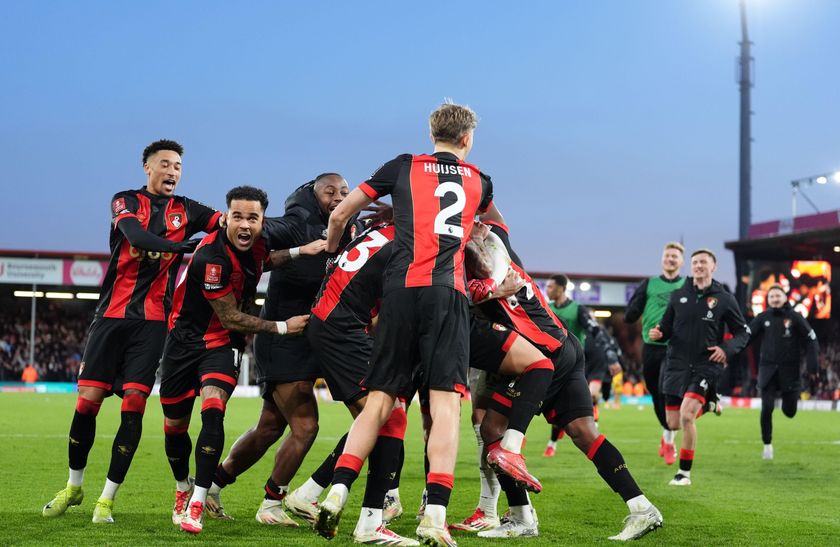The long read: What Borussia Dortmund did next...
Three years ago this month, FFT went behind the scenes at Borussia Dortmund to see how one of the world's hippest clubs was made. A lot has happened since then, including the opening of a Singapore office and a trip to Asia. So we dropped in for another visit...
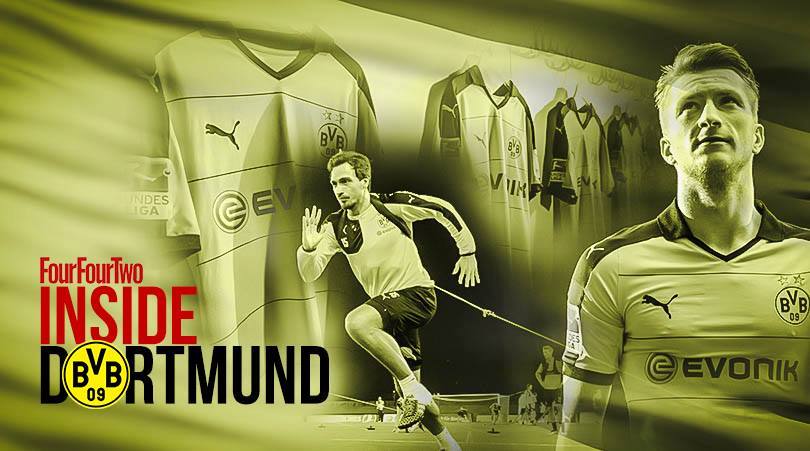
There are things only Thomas Tuchel can see. Literally. Borussia Dortmund's coach, the man chosen by the club to follow the iconic, still hugely popular Jürgen Klopp, is perched high above his new team, watching a training exercise from a cherry picker.
Down on the pitch, under both Tuchel's watchful eyes and a glaring sun, the players work out. Their coach is not the only one who's looking on intently. About 30 fans watch the exercise from the sidelines, waiting for the session to end so they can collect some autographs and talk to a few of the players.
At first, and apart from that cherry picker, it all looks, sounds and feels reassuringly familiar. It was a lot like this when, almost exactly three years ago, FourFourTwo first travelled with Dortmund to their winter training camp to research a cover story that caused quite a stir. No German club had starred on our cover before and most would have expected Bayern Munich to be the team to buck the trend.
But there was a distinct buzz about Borussia back in early 2013. A buzz you could sense during that training camp. The intensity of the coach, the enthusiasm of the players and the almost palpable love of the fans combined to create the impression of a club clearly going places.
A few months later, Borussia upset Real Madrid to reach the Champions League final – suddenly they had caught the imagination of a whole continent. This was particularly true in the UK, where Klopp's gung-ho side became many fan’s second team. In some cases, even their first. In October 2014, the BBC reported Dortmund were now "attracting more than 1,000 fans from England to every home match".
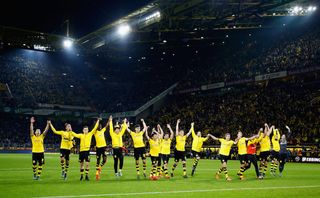
It's a staggering figure, even when you take into account the massive size of Borussia's ground and the fact that the club are, as specialist magazine Sports Venues 2016 asserted in December, the second-best supported sports team in the entire world (only the NFL's Dallas Cowboys draw more punters to an average home game.) There are no two ways about it, since FFT last rubbed shoulders with the men in yellow, Dortmund have managed to become one of the most recognisable football brands on the planet – without winning anything of importance. That's quite an achievement and ample reason for us to go back and find out what has happened in those three years. And why.
Initially, Dortmund seem like pretty much the same club as in Klopp’s heyday. But look more closely and you realise that hardly anything is the same. For starters, the training exercise the coach is watching from up on high is not one of those intense pressing drills Klopp used to oversee, when the players' wheezing and panting would be accentuated by booming instructions and shouts of encouragement from the sidelines.
Get FourFourTwo Newsletter
The best features, fun and footballing quizzes, straight to your inbox every week.
We are playing beautiful football. Everybody's in love with what we're doing
Instead, the players are passing the ball around so rapidly that you can easily lose track of what’s happening. They do this in a space about a quarter of the size of a regulation pitch. Since the squad has been divided into three different teams, the man with the ball never knows where the next tackle will be coming from and has almost no time to pick out a team-mate among all those moving bodies.
It's a possession football exercise. A Thomas Tuchel exercise. "To some degree, we changed our style when the new coach came in," left-back Marcel Schmelzer tells FourFourTwo the following day. He joined the club 10 years ago as a 17-year-old and was arguably the most unsung of all Klopp's heroes. "We now have the ball a lot more often and for a lot longer," Schmelzer explains.
"We put so much pressure on the other team that they often drop back and close down space around their own penalty area. During these training sessions, we try to find solutions for such situations."

READ ON: To discover more about Tuchel, Pep Guardiola and BVB's superstars
The smash-and-grab approach and the aggressive running which characterised Borussia under Klopp have made way for a style which, whisper it, is reminiscent of Dortmund's biggest rivals. "Yes, you could say that," Schmelzer replies when FFT asks if Borussia may have become a bit more like Bayern Munich. "These days, one of the best ways to scout a Bundesliga opponent for us is to pay attention when they play Bayern.
"Teams tend to play deep against Bayern, as they normally do against us, so you can learn from the solutions Bayern find and then add your own." However, the defender points out that the key elements of Klopp's trademark "full-throttle football" are still deeply ingrained in the team.
"The core of our side is unchanged," he says. "That was good news for the new coaching staff, because it means the transition game and 'gegenpressing' have already become second nature to us. That is why we can work on refining the possession game during this training camp."
Once you have fallen into a downward spiral, it's very difficult to get out of it again
You don't have to look very hard to find out who is responsible for Borussia's modified approach. "As a person, and also as a coach, Klopp is probably more emotional than Tuchel," Henrikh Mkhitaryan explains. The stylish Armenian midfielder, who joined Borussia from Shakhtar Donetsk for a club-record £23.6 million in the summer of 2013, is speaking in English, one of six languages he speaks fluently.
"Maybe that's why Klopp's playing style was more about counter attacks and pressing," he adds. "Tuchel's philosophy is to keep possession and play very offensive football. He is a mentally strong person and has changed a lot in this team from the first day."
So it used to be about emotion and now it's about control? Mkhitaryan shakes his head slightly. "It's not about control," he objects. "It's about romance." Mkhitaryan flashes a smile; in equal parts mischievous and melancholic, he is the thinking fan's footballer – trust him to always come up with an interesting idea or an unusual metaphor. "We are playing beautiful football. Everybody's in love with what we're doing on the pitch. It's romantic football. Maybe other people feel differently about it, but that's my opinion."
He has a point. When Borussia travelled to one of the sunniest corners of the world to spend the winter break in favourable conditions, the team was lying in second place in the league, already a considerable margin behind Pep Guardiola's all-steamrolling Bayern. Yet during the first half of the campaign, Borussia managed to actually outscore the Munich giants.
Gabon striker Pierre-Emerick Aubameyang alone found the target 18 times in 17 league games and has a decent chance to become the first player in four decades to reach the magical mark of 30 Bundesliga goals in a season. Mkhitaryan, meanwhile, set up no fewer than 19 goals in all competitions. Add Marco Reus, as gracefully fleet-footed as ever, or Shinji Kagawa, who has finally recaptured the form that prompted his ill-fated move to Manchester United in 2012, and you have a team that is no less exciting than Klopp's class of 2013.
Which begs the question: what happened last year? After all, the main reason Klopp stepped down in the summer was the nightmarish nature of the 2014-15 season – one so bad not even a late surge and qualification for the Europa League could salvage it. In fact, in barely 18 months, the same group of players went from being title contenders to relegation candidates, then bounced back straight into the title race.
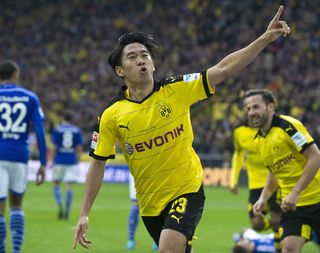
You would think that the players have had more than enough time to come up with an explanation for last season's collapse, but most find it far easier to dissect their recent rise. When you ask them how in heaven's name they could sink to the bottom of the pile only 12 months ago, heads are shaken and shoulders shrugged. "Once you have fallen into a downward spiral, it's very difficult to get out of it again," Schmelzer says. "You go into a game knowing you just have to win – and suddenly you're down a goal yet again. It becomes a vicious circle."
Even the eloquent Mkhitaryan can only describe what happened, not analyse it. "Football has become so competitive that you can't take anything for granted anymore," he says. "Look at Chelsea. They were champions last year, now they are near the relegation places. That's football. Everything is possible."
And yet there was one explanation tentatively voiced by observers last year which may have been retroactively substantiated by the team's current form. As early as November 2014, Klopp was asked if his football had been "decoded", whether the opposition had learned how to put what the coach liked to call his "pressing machine" into neutral. The question never failed to annoy Klopp – "Can you decode pace?," he once asked back with thinly veiled sarcasm – but it may have been a valid one, if only rephrased slightly.
Of course football isn't a computer programme you can easily infect with a virus once you know the code. But maybe, after seven years under the same coach, Borussia's game had become one-dimensional? Maybe the team needed a new impulse to get to the next level?
Mkhitaryan slowly nods. "Take the restaurant business as an example, he says. Having grown up in France, he might know a thing or two about fine dining. "If you have a good restaurant, there will be people coming to eat at your place every day. But if you have the same menu for five or six years, they will eventually grow tired of your restaurant. I think it's the same with football. Every once in a while, you have to change your style and show your supporters that playing in a different way can be fun, too."
Which brings us back to the man on the cherry picker. The 42-year-old Thomas Tuchel may be largely unknown outside his homeland, but this will certainly change. The joke in Germany is that Scousers should already take a good look at him. Tuchel, you see, made his name at Mainz, taking over the side one year after Klopp left.
If anything, he conjured even bigger miracles with the unfashionable side than Klopp had mustered, keeping them in the Bundesliga for five years running and even qualifying for the Europa League, both club records. Now he has also become Klopp's successor at Dortmund, which explains why he's often compared to the current Liverpool boss. However, the Dortmund mentor has also been compared to another managerial great.
Tuchel vs Pep
Just like Pep Guardiola two years earlier, Tuchel surprised everyone when he announced in 2014 that he would go on a sabbatical. Like Guardiola, he is fascinated by the tactical side of the game. At Mainz, he became famous for what he called the "matchplan", changing the formation and the line-up from game to game, tailoring both to that week’s opponents.
Another trait he shares with the Bayern boss is his policy of largely eschewing interviews, and yet, on the very first day of Dortmund's winter training camp, there's suddenly a tiny group of writers sitting together with Tuchel on the patio of the team's posh hotel in what can only be described as an intimate atmosphere.
It's almost more of a conversation than an interview, perhaps because everyone's a bit jetlagged and relaxed in that delirious, drowsy sort of way. Tuchel is talkative and in a good mood, speaking animatedly about the camp and the squad. When talk turns to the young Belgian Adnan Januzaj, who was loaned out from United but had gone back to Old Trafford on the previous day, he is straightforward.
"A part of him was always in Manchester and we just couldn't help him cut this umbilical cord," Tuchel says. "He didn't wholly embrace Borussia, he always compared everything with how it had been at United."
There follows a lull in the conversation, so FourFourTwo inquires whether it’s true Guardiola and Tuchel had been meeting in Munich bars. Silence descends upon the patio. In an instant, Dortmund's coach is transformed. For seven long seconds, Tuchel gazes at the floor and says nothing. Then he lets out a short laugh and looks up. "I'm awfully reluctant to talk about this," he says, trailing off. For the first time all day, perhaps for the first time since he joined the club, Borussia's coach is struggling to find the right words.
Last winter, Bayern Munich's technical director Michael Reschke arranged a secret meeting between Guardiola and Tuchel in a Munich restaurant, perhaps because he felt they were kindred spirits. This first encounter led to at least one more, but the meetings didn't remain secret for long. Partly because the two men unwittingly drew attention to themselves when they began moving salt shakers and glasses around to illustrate tactical ideas.
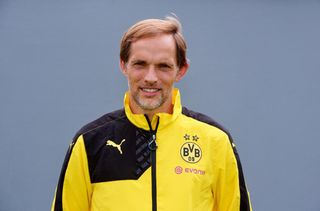
"Needless to say, for me it was a special meeting," Tuchel finally continues. "I have always followed Barcelona closely, because they hold a great fascination for me. First as a kid, then as a young man, right until now. I also remember Pep as a player who was so passionate that he overcame all limitations. To meet someone like that in person and then publicly talk about it, that would feel almost like a betrayal to me."
When the meetings became public knowledge, it underlined Tuchel's image as a football intellectual. After all, at the time he was just a fairly young manager on a sabbatical who had yet to coach a big team. Moving salt shakers with Pep marked him out as a Guardiola disciple; a tinkerer with a purely cerebral approach to the game. It helps you understand why many Dortmund fans had their reservations when it was announced that this pencil-thin man with the quick mind would follow Klopp, that 6ft4in brute with the quick tongue.
"I think he's a good choice," says Andre, pointing at Tuchel up there on the cherry picker. Andre, a fireman by profession, is one of the Dortmund fans who follow their team everywhere. "He has won over people quickly," Andre adds. "Of course the results have helped, but it's also that he's turned out to be a lot more open and approachable than people thought. I'm looking forward to talking to him to hear what level of interaction with the fans he will allow."
This is Andre's 35th training camp with Borussia. He explains how some coaches don't mind the presence of supporters at such camps, while others wish there could be total privacy. "And you might be surprised to hear which coaches fall into the former category and which into the latter," Andre says with a faint smile. "Some people have a certain image and then turn out to be totally different."
FFT is mingling with fans because this is one club you can’t profile by talking only to players or coaches, no matter how interesting or glamorous they may be. Borussia have become globally popular not just because of what they do on the pitch. In an increasingly artificial football world, they are perceived as authentic. And in a football world that increasingly marginalises supporters, they are admired for their fan culture.
Many people have embraced Dortmund as an alternative to all those teams – naming no names – that seem like branches of the entertainment industry now rather than sports clubs.
But you can’t stand still. Three years ago, there were more than twice as many fans at Dortmund's winter training camp than there are now. The reason is simple. In 2013, Borussia went to La Manga in southern Spain. Now, in 2016, they are in Dubai – 4,100 miles away from Dortmund. The club is keen to stress that it is a "regular, paying customer", that there were no financial incentives to come here and help put the Gulf region on the footballing map.
But when Dortmund announced in late November that they were heading to Dubai, the press release did mention that it was part of an effort to "drive forward Borussia's internationalisation".
Put differently, Dortmund have begun to think globally. Three years ago, FFT caught them as they embarked on a thrilling journey – now we meet them at a crossroads. "They have to be careful," Andre says. "They can't become too commercial or they'll be beaten round the head with that motto they have – ‘true love’. But they know this. Still, it will be difficult. They have won so many new fans. They have to stay true to themselves and remain who they are. But at the same time they have to move forward."
Come to think of it, it really is just like the restaurant business.
Dortmund's dynamic duo
On day four of Dortmund's winter training camp, FourFourTwo is not granted an exclusive interview with one of the protagonists. Instead, on a balcony overlooking one of the most exclusive yacht clubs in the world, we meet two of them at the same time. That's because they come as a double act – Batman and Robin. Without their masks, though, it's hard to tell who is who, so we ask the duo to kindly reveal their secret identities.
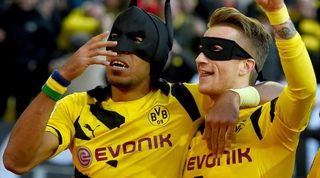
Marco Reus, reputed to be an introvert who is uncomfortable in interview situations, giggles like a schoolboy whose best pal has just been reprimanded by the headmaster for a crazy prank the two played together. Pierre-Emerick Aubameyang, who is supposed to be a swashbuckling jester, doesn't join in the laughter. Instead, he seems almost embarrassed. "Well, when we celebrated the goal," he replies, referring to his crucial opening strike in a derby against Schalke last year, "he was Robin and I was Batman."
Reus, still chuckling with delight, picks up the story and explains how Aubameyang's interpreter deposited the masks behind Schalke's goal and how they quickly changed into their superhero gear for the cameras once the ball had crossed the line. "It was not our intention to offend Schalke," he says. "It was a special game at a special moment in the season, because we'd finally begun to string a few wins together and were climbing out of the relegation zone. So we wanted to do something special. And I guess it looked really good."
While Reus is doing the talking, Aubameyang stays strangely quiet. Then, returning to the question about who is who, he emphatically states: "But we're the same, you know. We're like brothers." It turns out he wasn't in the least concerned that someone could find their stunt silly or interpret it as a slight against Schalke. Instead, Aubameyang was seriously worried people might think he sees Reus as just an assistant, or his sidekick.
It's a characteristic remark. Despite the flashy clothes (he's partial to Swarovski crystals), the fancy car (he drives a golden Porsche Panamera) and the flamboyant hairdo (his figaro regularly flies in from Paris), Aubameyang is the rarest of modern stars: a man without an ego. When he was recently asked why he was scoring so freely, he replied without the slightest hint of irony that his team-mates were setting him up so well that many of his goals were easy tap-ins.
And as one of those team-mates remarked off the record in Dubai, Aubameyang was probably the only guest at the team's five-star resort who made his bed before leaving the room. As Andre, the far-travelled fan, might have said, some people are totally different from their image.
"When I first saw him I couldn't believe my eyes," Reus recalls, beginning to laugh all over again. "I had never seen someone like that. There were studs all over his clothes and rhinestones, bling-bling everywhere,” he chortles. "But you must always look behind the exterior, at the person. 'Auba' turned out to be modest, almost shy. He is a fantastic guy."
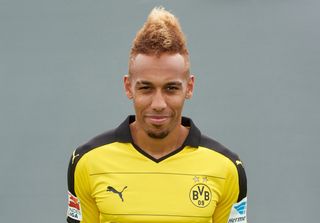
"I think the whole club was a bit scared when I arrived and they saw me," Aubameyang says. "But it's just a look. It's my style." He looks at Reus and adds: "Marco was very cool when I came here. He knew that it can be difficult when you join a new club, so he was always there to help me. When I wasn't picked or wasn’t playing as well, he said: 'come on, keep your head up, everything will be OK'. That's how we became friends."
Aubameyang had travelled a lot before he arrived in Dortmund. Born in France as the son of a former Gabonese international, he joined Milan's youth team at 16 years of age. It was his stunning pace which caught the eyes of the Rossoneri, but speed isn't everything. As Aubameyang admits, he was too young and out of his depth. Milan loaned him out to numerous French sides and eventually let him go to Saint-Étienne, where he finally blossomed into a prolific goalscorer.
Only Zlatan Ibrahimović found the target more often during the 2012-13 Ligue 1 season. Despite interest from Newcastle, it was Dortmund who snapped him up in the summer of 2013 for an undisclosed sum that probably came to around £11 million.
When Aubameyang joined Borussia, one year after Reus and six weeks after Henrikh Mkhitaryan, Dortmund had just narrowly missed out on winning the Champions League and were expected to give Bayern a run for their money on a consistent basis. But now, three years later, Bayern appear utterly uncatchable, while Borussia are back where they started their ascent under Klopp, in the Europa League. Why has the gap widened so much?
"It's all about money," Reus replies. Now it's Aubameyang who's roaring with laughter. However, it's a laughter of confirmation, not amusement. "It's as simple as that," Reus says. "If you have a lot of money, you can buy every player you want. If you have less money, it becomes a bit difficult. Then you have to work harder."
What is of the greatest importance for the club is that we get back into the Champions League
It's a sentiment echoed by Schmelzer. "Let's not forget that we lost two key players – to Bayern," the defender says, alluding to Mario Götze and Robert Lewandowski. "And while it's true that we fell behind last year, when we had a bad season, we've come back strongly now. There are some very good players on this team, players who can make the difference.
"The trick, of course, is to keep them here for a longer period of time. Who knows, maybe it would have been different if we had won the Champions League final? Maybe we would have been able to maintain the balance of power for a bit longer?" The man who's spent more seasons in Dortmund than almost anyone pauses for a moment.
Then he pointedly adds: "We don't see ourselves as a team that competes with Bayern. What is of the greatest importance for the club, and for all of us, is that we get back into the Champions League. At the moment, second place in the Bundesliga is the best we can do. You have to be realistic about this."
Three of the players who can make the difference are Mkhitaryan, Reus and Aubameyang – Dortmund's crown jewels. As Schmelzer says, the trick will be keeping them in Borussia's famous yellow shirts. Mkhitaryan's contract runs out in 2017. If he doesn't feel like extending it, Borussia have to sell him this summer to recoup their considerable investment. (When FourFourTwo asks him when he will make his decision, the Armenian grins broadly and says: "When everything will be clear." He adds: "The club have taken the first step, but I leave all negotiations to my agent, because I want to concentrate on football.")
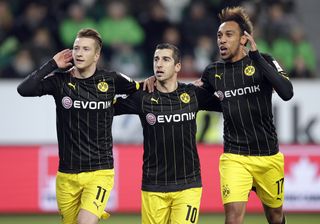
When Aubameyang missed a training session two days before the team left for Dubai, it fuelled speculation that he was in talks with an English club about a move during the January transfer window. According to some UK newspapers, Arsenal were willing to part with a club record transfer fee for his services. But a few days later, the player ruled out a move in the near future.
It may seem like a contradiction of what his fast friend Reus says modern football is all about – rich clubs with money buying "every player they want". However, you have to take into account the circumstances. When Aubameyang made that pledge of allegiance, he was not in Dubai with the rest of his team but in Abuja, Nigeria, where he had just been crowned CAF African Footballer of the Year.
It was a stunning success in every regard. No player representing Gabon had won the honour before. No player active in Germany had won the trophy before. Aubameyang was only the second player born in Europe to be honoured with the award. Finally, he managed to edge out four-time winner and odds-on favourite Yaya Touré even though the Manchester City player had lifted the 2015 Africa Cup of Nations with Ivory Coast.
When Aubameyang was handed the trophy, he broke into tears. On the next day, he was given a presidential reception in Libreville, Gabon. When he finally caught up with his team-mates in Dubai, on the third day of the camp, he was in such high spirits he walked around with the trophy in his hands, inviting everyone to participate in his joy.
It may not have been his intention, but Aubameyang's display of the piece of silverware was symbolic. He was demonstrating for all to see that you can stay at this club and still achieve great things, you don't have to join Bayern or move to England or Spain. "Maybe some people were surprised that I won," he says, "but I always felt I had a chance because I had worked hard for this. Now I'm proud and happy."
His friend Reus leans over and says: "If you work as hard as he does and score as many goals as he does, it's just a matter of time until you'll be rewarded."
It would make for a good description of this winter training camp. No matter if the players are knocking a ball around, running laps in the heat or talking to reporters – it's almost palpable how the first half of the season has restored their confidence, poise and pride. "Yes, we had some problems last year," Reus says. "But before that we were in the quarter-finals of the Champions League two seasons running.
"I think we're still among the top 10 in Europe." His words are echoed by Mkhitaryan: "I would say we are among the 10 best teams on the continent. Of course, this season we are playing in the Europa League, but we hope it's just a preparation for next year, when we want to be in the Champions League again. Our new style is already geared towards the Champions League."
The right attitude
The man most responsible for this new style will be happy that his players have rediscovered their belief in themselves. But since he is a coach, keeping his men on their toes is a part of Tuchel's job description. Standing at the sidelines of the Dubai training pitch, squinting against the sun, he says: "What we must do is detach ourselves from all the plaudits that were, and still are, showered upon us.
"We still keep hearing how great the first half of the season was. This first half is over. In sports, nothing is older than a game that has been played. Now we have to find the right attitude and validate what we have done by doing it all over again."
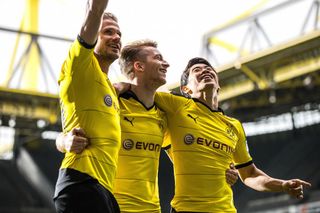
These are not mere stock phrases from a coaching manual. Tuchel is still unhappy about the fact that his team rather carelessly threw away first place in their Europa League group by losing the last two games, both 1-0, after qualification for the knock-out stage had already been secured. As a result, they now have to play Porto in the next round. "This is not going to be easy," Tuchel says. "It sounds like a Champions League tie and will be just as difficult."
Still, Dortmund are certainly among the favourites to win this competition. For most fans, the dream final would see them pitted against Liverpool and Klopp. Opinion among the players, though, is divided. "Of course I hope we can reach the final," Schmelzer says, "and this would be a good game." Aubameyang begs to differ: "Winning this title would be great," he says. "But I hope to play against Saint-Étienne rather than Liverpool."
Just as he is about to leave for the coach that will take the team from the NAS Sports Complex, a dozen miles south of the bustling city centre and not far from the desert, back to the squad's hotel there is one more question for Thomas Tuchel. What is possible for this team?
"A lot," he replies without a moment of hesitation. "If we keep working hard, if we find the right attitude and if we focus on what we want to achieve, then a lot is possible for this team." Tuchel nods his head to indicate he wishes us a nice day, then he walks away, leaving the area marked out for members of the press. He passes the small group of Dortmund fans. From a distance, it looks as if he stops to have a brief word with Andre, the fireman who goes wherever Borussia go.
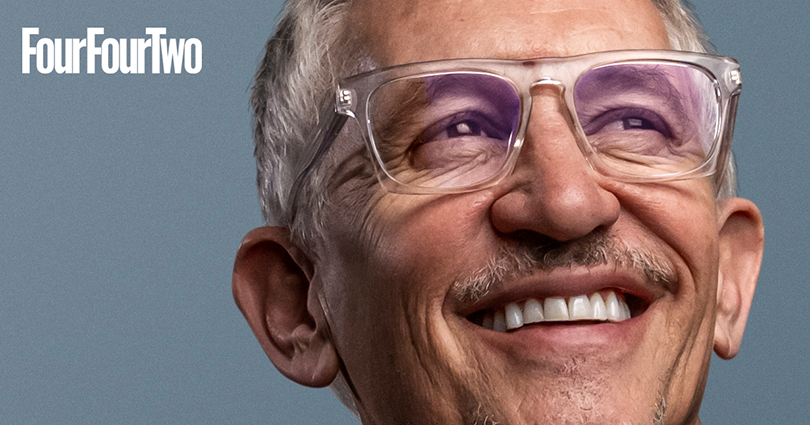
‘Sir Gary Lineker? I don’t know how you comment on that – I’ve never even considered it. I just try to stand up for the things I believe in’ England legend tells FFT why he won’t stop raising humanitarian issues, even if it affects potential honours
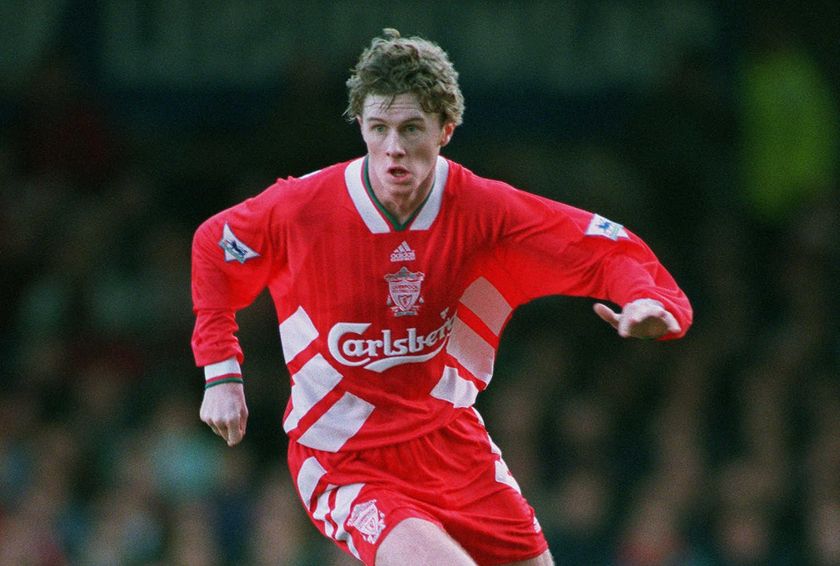
'I fell on the floor and shouted for a penalty. Someone pulled me up and said, "Don’t cheat to win penalties". It was Steve McManaman. I never did it again!' Ex-Liverpool forward reveals harsh lesson he learnt from his team-mate on Reds debut
